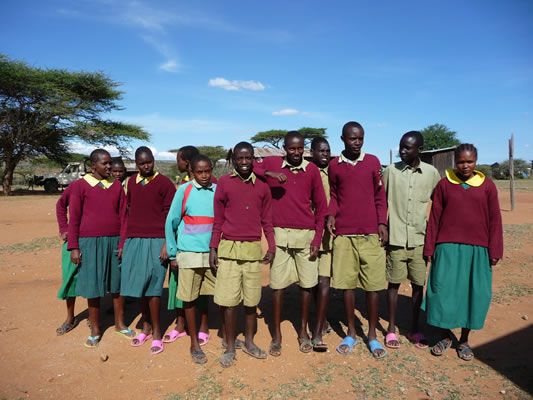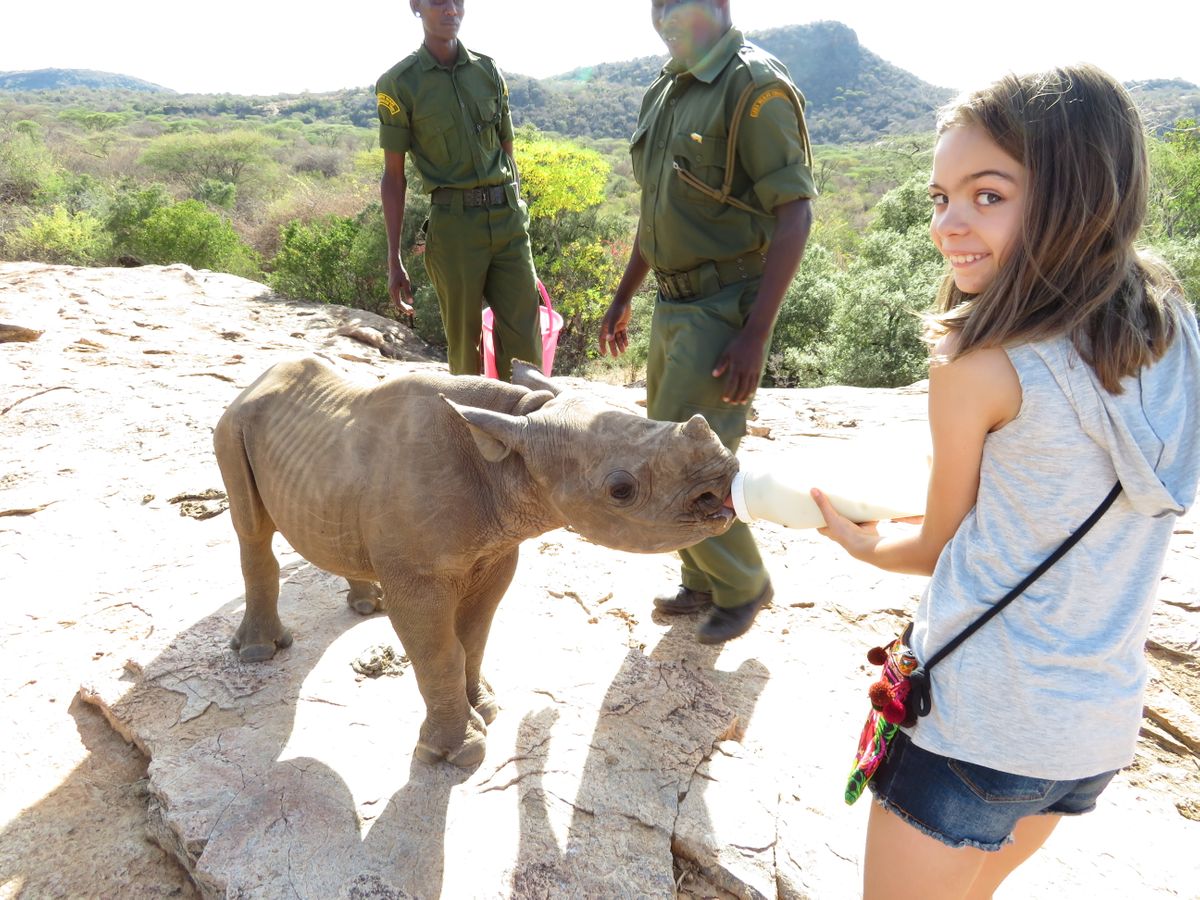
From Gorillas to Elephants: Giving Back in 2019
At Mango Safaris we pride ourselves on being a conservation-based organization that gives back to the destinations we visit. Every trip we plan includes a contribution built into the trip cost for our chartiable efforts. We believe in supporting both the wildlife and the communities that make our destinations so special. Every year our team sits down together and discuss which organizations stand out to us, and which we feel are doing an outstanding job of conserving wildlife, developing communities or a combination of the two. Based on this we allocate our annual contributions. We aim to suppport a variety of groups across a wide geographic range, from the flood plains of the Okavango Delta in Botswana to the mist draped volcanic mountains of Rwanda. Some groups target specific animals, while others take an ecosystem level approach...some focus on education, and others on job skill training...but all are doing their part to improve the welfare and future of Africa, just like we aim to do.
By traveling with us, many of you have already made a contribution, but if you are inclined to donate more in the holiday spirit, we have included links below to their webpages where you may make an additional contribution.
Photo: Mara Sullivan (daughter of Mango co-founder Teresa Sullivan) feeding an orphaned baby rhino at Sarara Camp in Kenya

THE MANGO-BISATE GORILLA HABITAT REFORESTATION PROJECT
Annual contribution: $16,000
Where they operate: Rwanda
Why we love it: Several years ago, Wilderness Safaris, one of our biggest partners in Africa, approached us about a partnership for a large-scale environmental restoration project. Their vision was to buy back land adjacent to Volcanoes National Park, Rwanda and convert back from agricultural land to native forest. The end goal was to donate all the land back to the national park, thereby expanding its boundaries and the habitat available for endangered mountain gorillas, golden monkeys and countless other species. The massive undertaking is executed in several phases. First, land is bought back from farmers at market value. Second, the local laborers are brought in to clear invasive species and do other ecological restoration. While the land is being cleared, the agronomy team gathers clippings from native plants and propagates them in the Bisate Nursery. Once big enough, they are transplanted into the cleared land in phase three. The agronomy team continues to monitor not only the health of the plants, but also the progression of species returning to the restored habitat.
We are thrilled to be a part of this incredible project. In addition to our annual contribution of $4,000 from past years, we also fundraised $12,000 during our 20th anniversary celebrations. We auctioned off a luxury 13-night safari through East Africa, with 100% of ticket sales going directly to the Mango-Bisate Gorilla Habitat Reforestation project.
Visit mangoafricansafaris.com/blog/bisate-mango-forest to make a donation yourself or learn even more about the project.
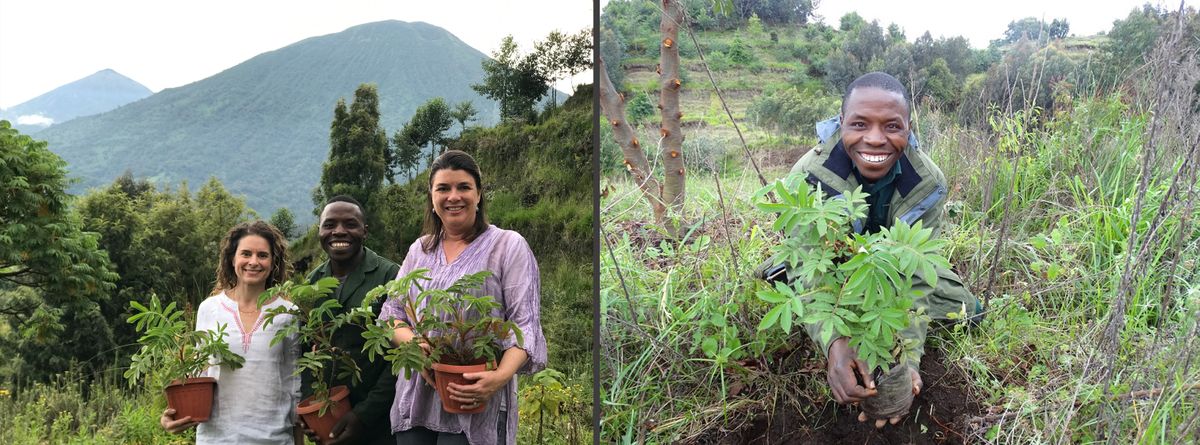
RHINO CONSERVATION BOTSWANA
Annual contribution: $6,000
Where they operate: Botswana
Why we love it: RCB is working to give wild rhinos a fighting chance in an era when poaching is rapidly driving them to extinction across Africa. With rhinos disappearing at an alarming rate, conservation organizations such as Rhino Conservation Botswana are working diligently to develop innovative and effective techniques to protect wild populations. RCB struck on the unusual idea of translocating black and white rhinos from areas of high poaching to areas with much lower risk that will provide a safe haven for populations to grow and thrive naturally. Numerous have already been moved from South Africa to Botswana and are currently being monitored, but the work is never done and there are many more rhinos in need of translocating. Each rhino costs around $70,000 to rescue and relocate. Once locally extinct from Botswana, they are now being repatriated into the complex tapestry of waterways and islands that define the Okavango Delta. Despite the ongoing monitoring and anti-poaching efforts, poachers are also continually evolving and shifting their tactics, so supporting organizations such as RCB has never been more important. If we want rhinos to continue to live in the wild for generations to come, it is essential that we support their work. For this reason, Mango Safaris has chosen to continue to include them in our annual conservation donations.
Visit rhinoconservationbotswana.com to make a donation yourself. Let us know if you contribute – we would love to give you a shout out in our next newsletter!
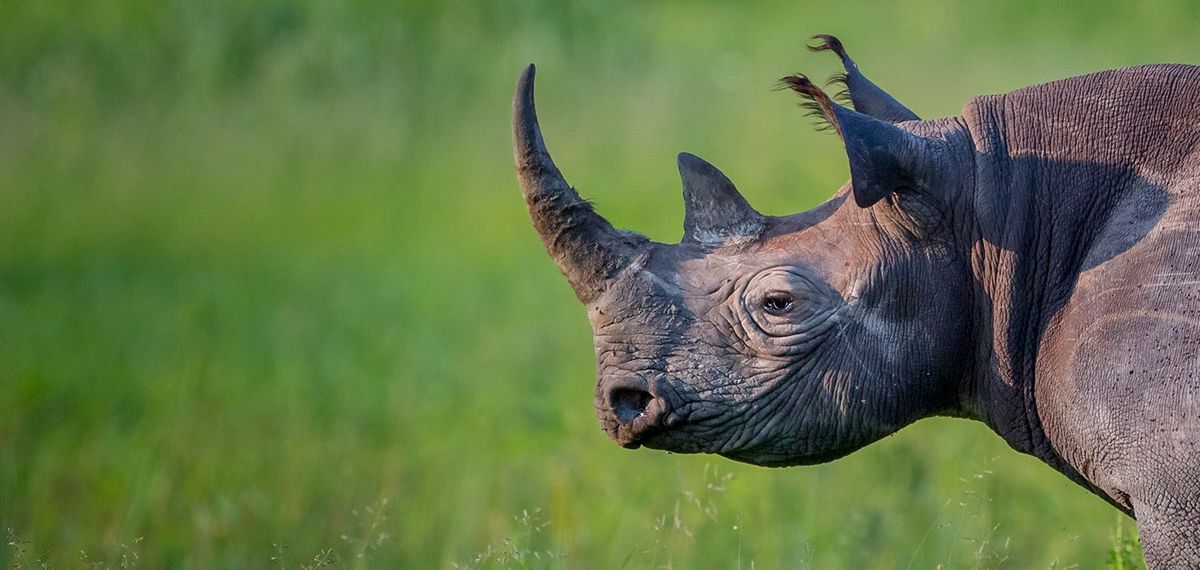
CHILDREN IN THE WILDERNESS
Annual contribution: $5,000
Where they operate: South Africa, Botswana, Namibia, Zambia, Zimbabwe, Rwanda, Malawi
Why we love it: When it comes to conservation, we are all in this together. Educating and inspiring the next generation is essential for the future of our wild spaces and the remarkable biodiversity that calls it home – ourselves included. Children in the Wilderness operates in some of the planet’s most sensitive and ecologically fragile areas, such as the Okavango Delta (Botswana) and Volcanoes National Park (Rwanda). With many of these ecosystems threatened by the impacts of climate change, ensuring their long-term preservation has never been more important. Many of them act as the last refuges for critically endangered species, such as the mountain gorilla and white rhinos. The program runs numerous programs across seven countries that include conservation education for elementary school students, scholarships for promising students studying Africa wildlife and ecology in university, and training for schoolteachers on incorporating more science into their lessons. Many of their participants have gone on to work in conservation and ecotourism operations across all seven of the countries in which they operate in positions ranging from anti-poaching to conservation educators.
Visit childreninthewilderness.com to make a donation yourself. Let us know if you contribute – we would love to give you a shout out in our next newsletter!
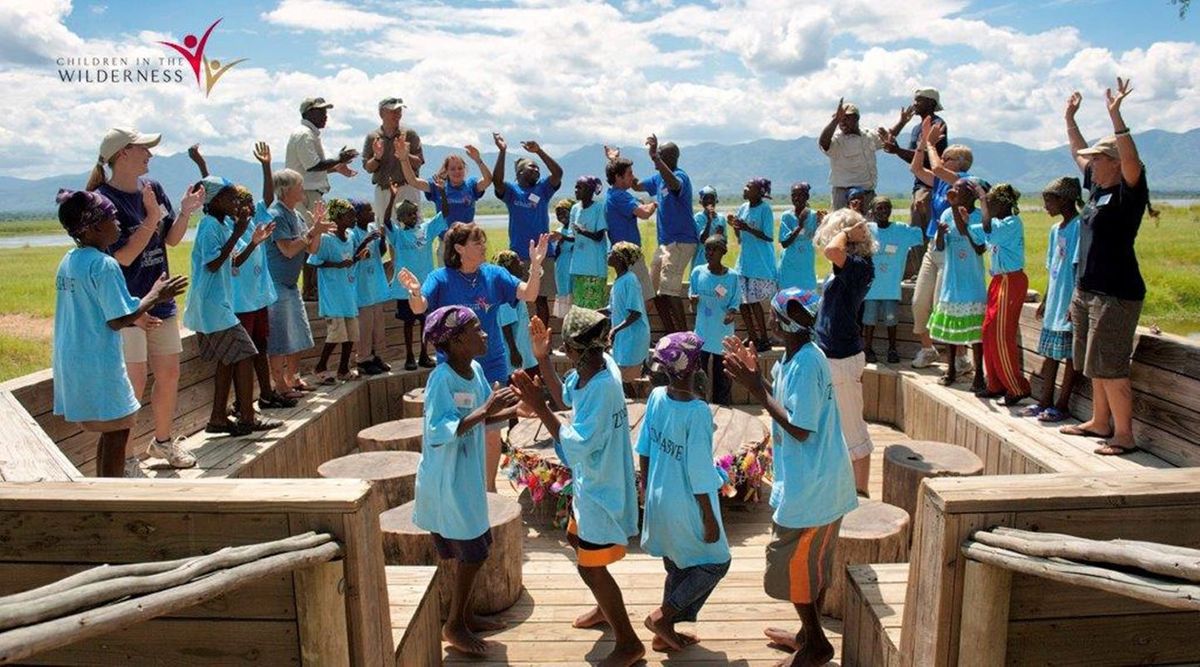
CHEETAH CONSERVATION FUND
Annual contribution: $2500, plus donating and organizing safari packages for their fundraising auctions
Where they operate: Namibia
Why we love it: Cheetahs are an iconic of the vast African savannahs, but they are sprinting toward extinction at an alarming rate due to habitat loss, the illegal pet trade and human-wildlife conflict. With only 10% of their historical population remaining in the wild, organizations such as the Cheetah Conservation Fund are essential to preserve their future. CCF deploys a multi-pronged approach to saving them, ranging from rescuing and rehabilitating injured wild cheetahs to raising and giving out livestock protecting dogs to villagers in areas where cheetahs have been killed in retaliation for taking goats or sheep. They also operate several education programs to engage the future generations and teach them about the importance of wildlife. By working with the animals hands-on, targeting the sources of their decimation and proactively reducing the risk of future losses, they hope to not just preserve those that remain but boost their numbers.
Visit cheetah.org to make a donation yourself. Let us know if you contribute – we would love to give you a shout out in our next newsletter!
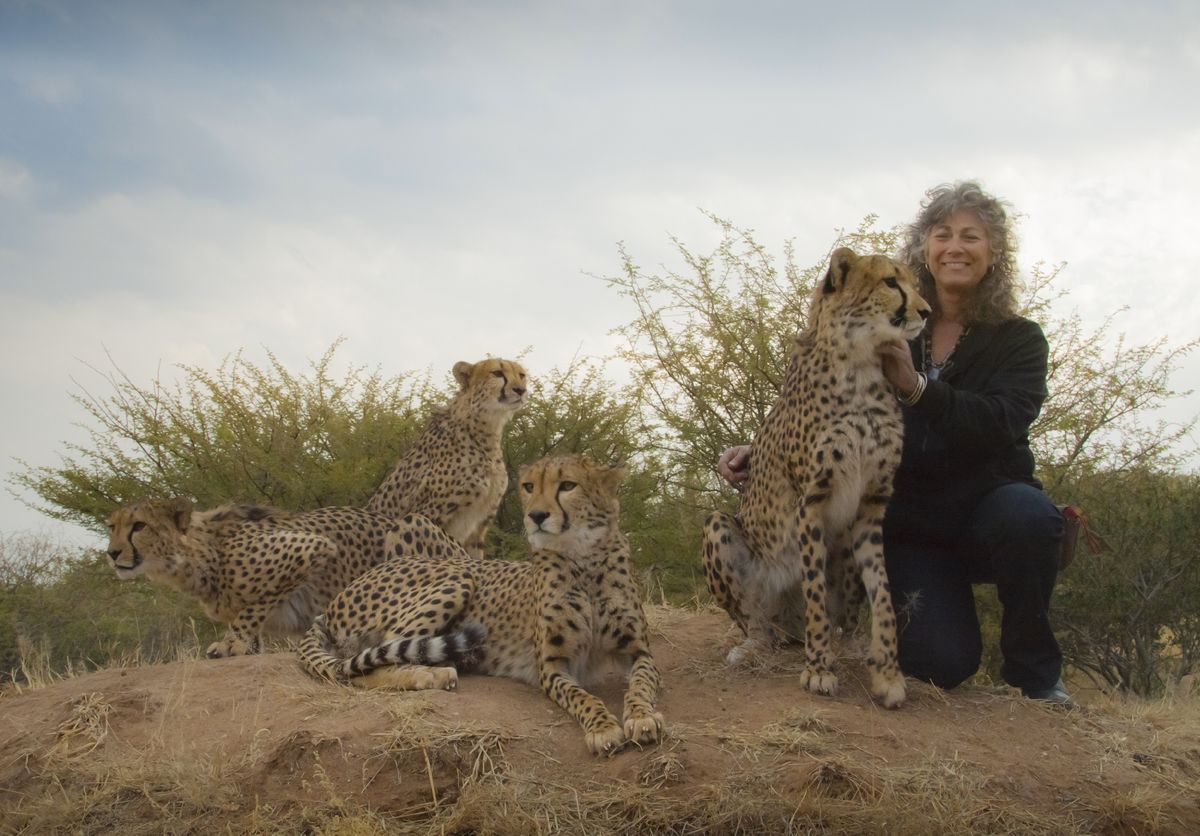
THE FALLEN RANGERS FUND
Annual contribution: $6,000
Where they operate: Republic of Congo
Why we love it: The Fallen Rangers Fund is part of the Virunga Alliance that works to protect endangered mountain gorillas in a region where populations remain critically low due to habitat loss and illegal poaching. With about one third of the world’s remaining population, protection is critical. Poachers are highly motivated, so these long-lived, slow-reproducing animals need rangers that are continually evolving their dedicated efforts to protect them. Their work and willingness to risk their lives for these magnificent animals has paid off. With numbers once as low as 274 individuals in 1971, the population has managed to grow to around 1000 gorillas – a remarkable feat when considering that in the past, the population had halved in just 12 years. This wonderful news doesn’t come without a price though – since the national park was founded in 1925, over 175 rangers have lost their lives protecting the wildlife.
Starting in 2007, park authorities have made the effort to track every widow dating back to 1991 when conflict escalated within the country. For six months after a ranger’s death the park continues to pay their full wages to their widow as their family adjusts to their way of life. The families also receive free medical services provided through the park’s facilities. The Fallen Rangers Fund gives 100% of donations directly to the widows. The fund also provides critical support, employment and job skill training to the widows to help them find an alternative way to support their families.
Visit virunga.org to make a donation yourself. Let us know if you contribute – we would love to give you a shout out in our next newsletter! Photo by Adam Kiefer for Virunga
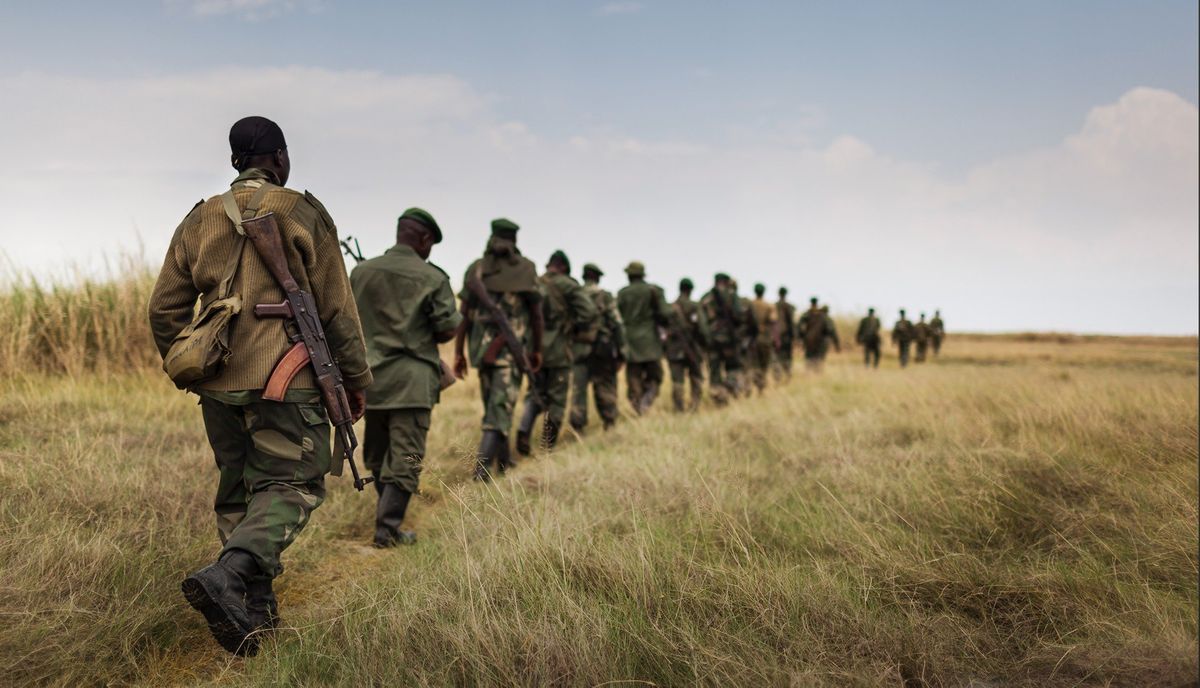
RETETI ELEPHANT SANCTUARY
Annual contribution: $2,000
Where they operate: Kenya
Why we love it: The Reteti Elephant Sanctuary in Northern Kenya’s Namunyak Conservancy is entirely owned and operated by the Samburu communities who have called the region home for thousands of years. Elephants are struggling across the continent, falling victim to illegal poaching, habitat loss and other human wildlife conflict. Reteti is a particularly wonderful example of how humans and wildlife can come together for the mutual benefit of both. Orphaned elephants are cared for and raised in the sanctuary, helping secure their future in the region for generations to come. This in turn helps the region remain a wonderful destination for ecotourism that brings in revenue, jobs and benefits such as schools and medical clinics for the communities. With only three luxurious camps in the entire 850,000-acre community-owned conservancy, the experience is wonderfully exclusive and allows welfare of the conservation and community to be priority. At Mango Safaris we believe this model of high-end, low-volume ecotourism is the future of Africa and the best hope for protecting the integrity of the continent’s wild spaces.
Visit retetielephants.org to make a donation yourself. Let us know if you contribute – we would love to give you a shout out in our next newsletter!
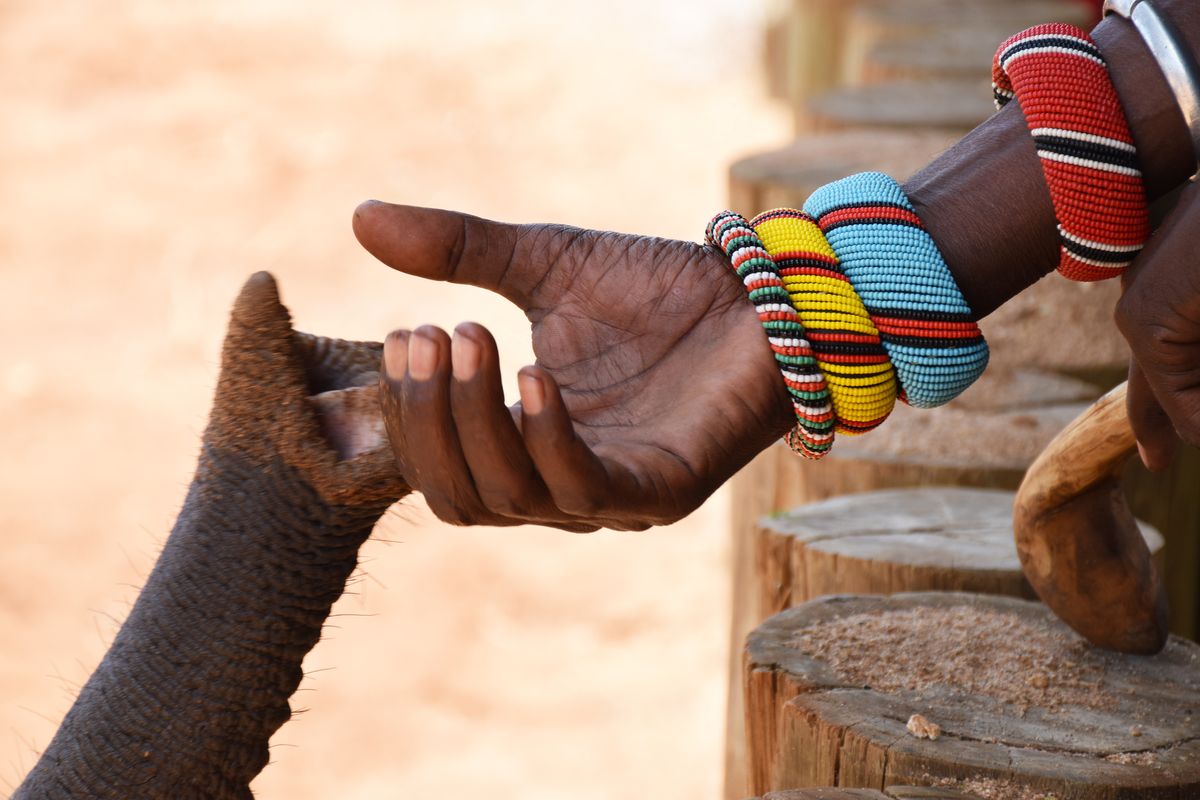
THE KARISIA SCHOOL MEAL PROJECT
Annual contribution: $3,000
Where they operate: Kenya
In partnership with two past clients, Jan and Jon Lee, we have been supporting a school in Northern Kenya by providing the students with a daily meal. Early childhood nutrition is essential. Improved nutrition allows kids to pay attention in school better, helps them grow up healthy and strong, and boosts their immune system.
The Lees visited the school in 2016 when they traveled to Kenya, and felt inspired to create this project. We are always open to collaborating on such efforts with our clients, and strongly encourage anyone who feels inclined to contribute however they can.
